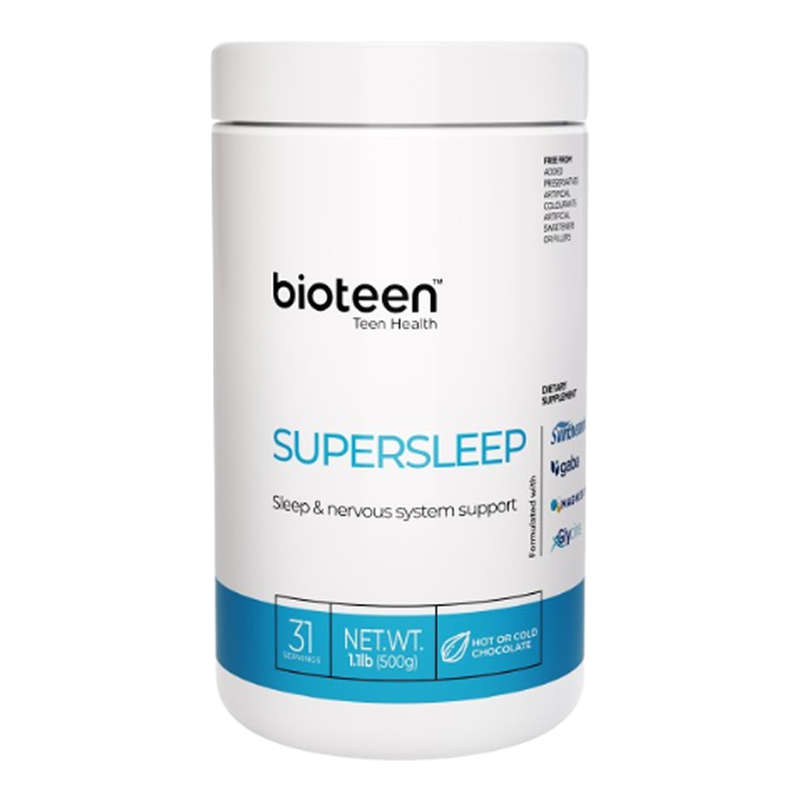
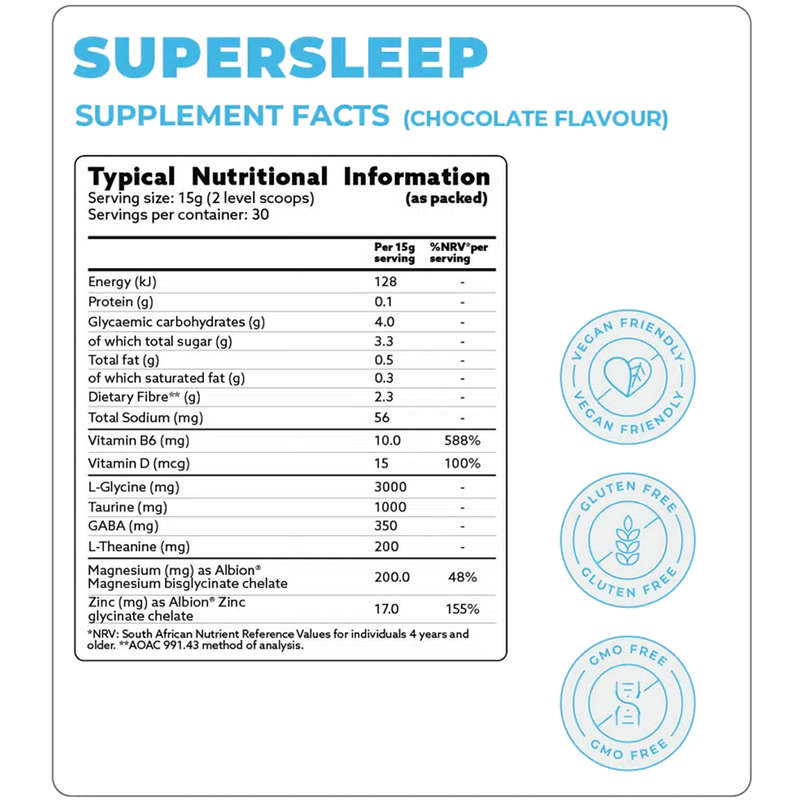
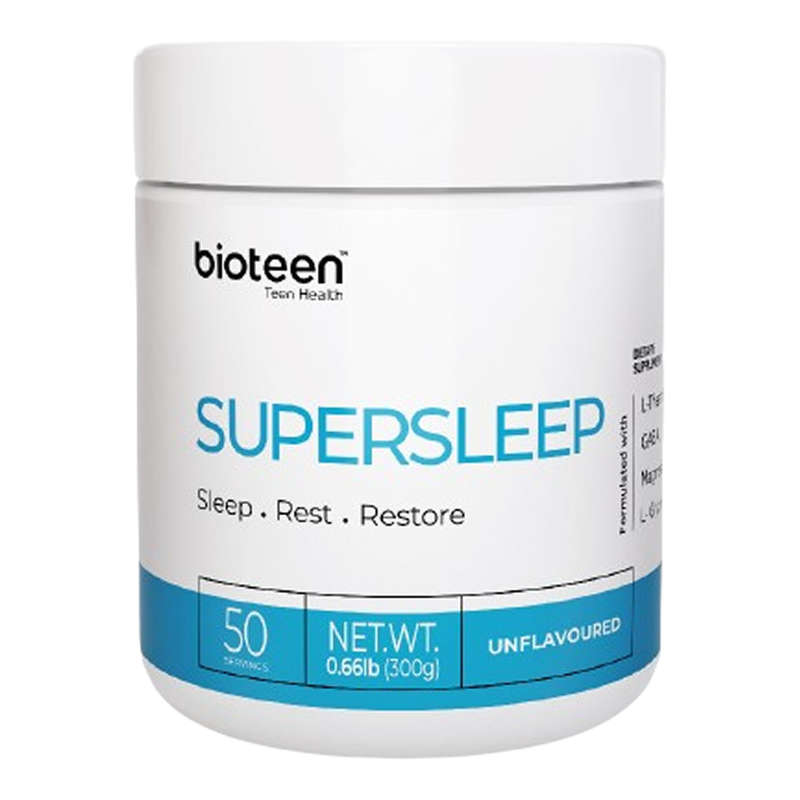
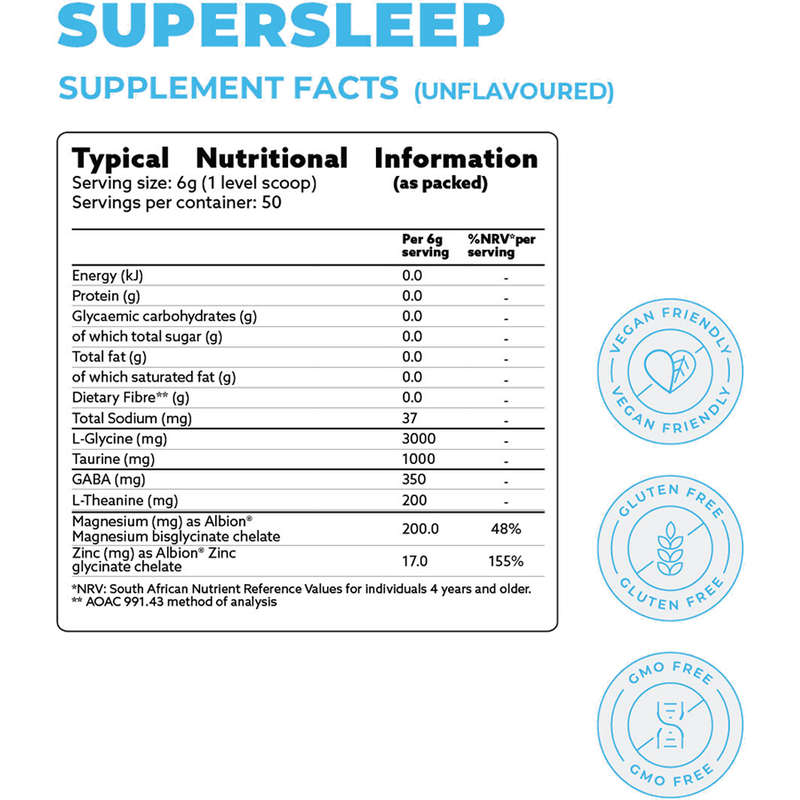
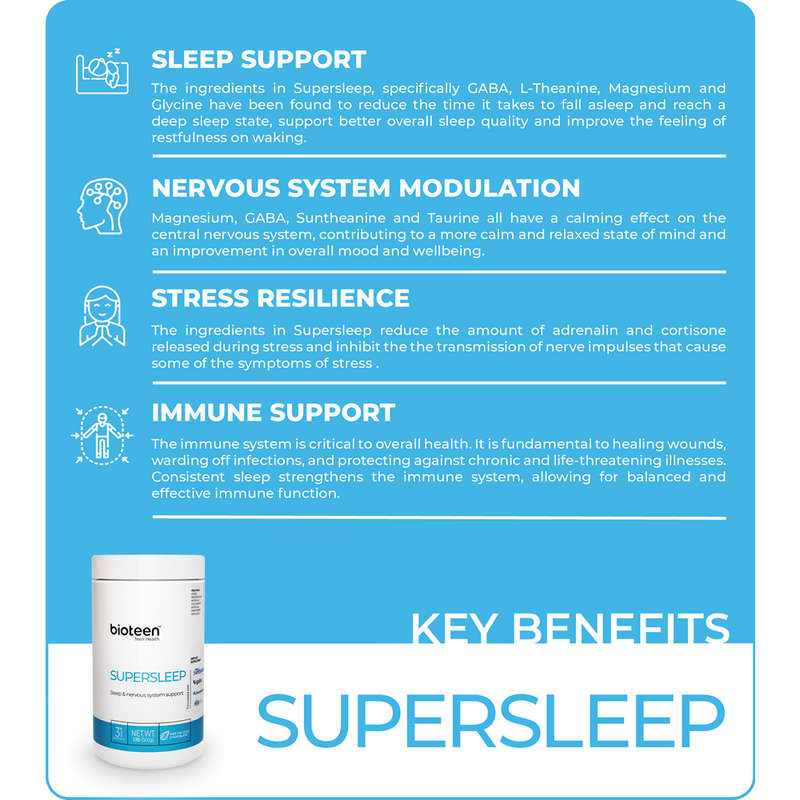
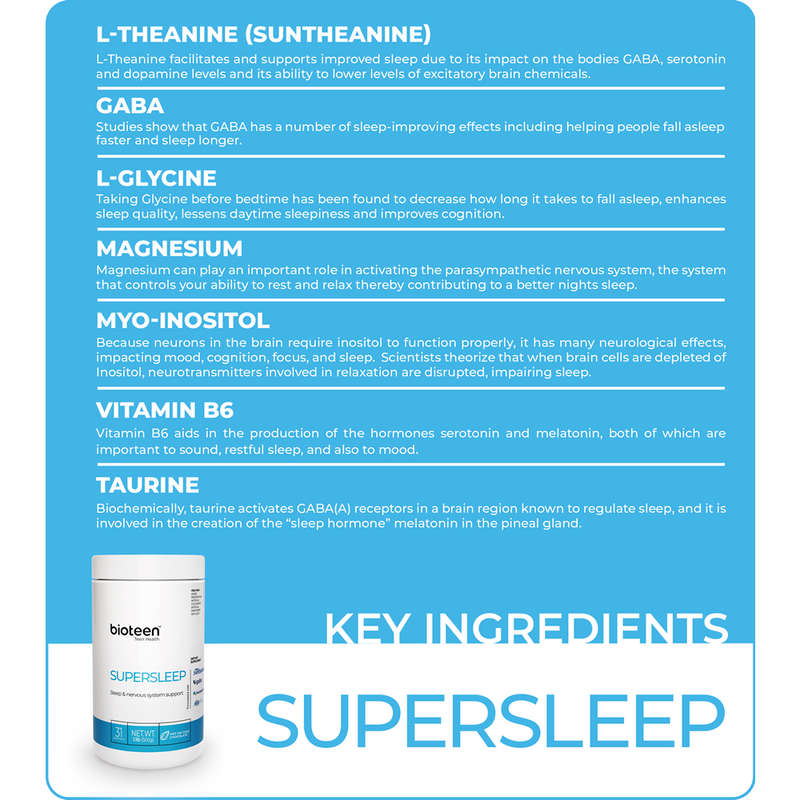





Bioteen Supersleep
Check my rate
| Main centres: | 1-3 business days |
| Regional areas: | 3-4 business days |
| Remote areas: | 3-5 business days |











| Main centres: | 1-3 business days |
| Regional areas: | 3-4 business days |
| Remote areas: | 3-5 business days |
Substantial physical development happens during adolescence and can be negatively affected by a lack of sleep.
Prolonged sleep loss may affect emotional development increasing risks for interpersonal conflict as well as more serious mental health problems. Mental health disorders like anxiety, depression, and bipolar disorder have routinely been linked to poor sleep. Both the National Sleep Foundation and the American Academy of Sleep Medicine agree that teens need between 8 and 10 hours of sleep per night. Getting this recommended amount of sleep can help teens maintain their physical health, emotional well-being, and school performance.
Recent studies also suggest that sleep itself may play an active role in sculpting the adolescent brain. One such study examined structural MRI scans in 290 children and adolescents between the ages of 5 and 18 years and found that self-reported sleep duration was positively correlated with bilateral hippocampal grey matter volume.
Sleep benefits the brain and promotes attention, memory, and analytical thought. It makes thinking sharper, recognizing the most important information to consolidate learning. Sleep also facilitates expansive thinking that can spur creativity. Whether it's studying for a test, learning an instrument, or acquiring job skills, sleep is essential for teens.
Given the importance of sleep for brain function, it's easy to see why teens who don't get enough sleep tend to suffer from excessive drowsiness and lack of attention that can harm their academic performance.
By almost all accounts, many teenagers in America are not getting the recommended 8-10 hours of sleep per night. In the 2006 Sleep in America Poll by the National Sleep Foundation, 45% of adolescents reported getting less than eight hours per night.
The problem may be getting worse. Data from four national surveys conducted from 2007-2013 found that nearly 69% of high school students got seven or fewer hours of sleep per night. Estimates place the rate of insomnia in adolescents as high as 23.8%. Insufficient sleep among teens has been found to be higher among women than men. Older teens report getting less sleep than people in early adolescence. Surveys have also found that teens who identify as Black, Asian, and multiracial have the highest rates of sleeping less than eight hours per night.
Bioteen created Supersleep to provide an effective nutritional supplement for teens to help promote a better night's rest.
The various ingredients in Supersleep have been found in independent studies to: